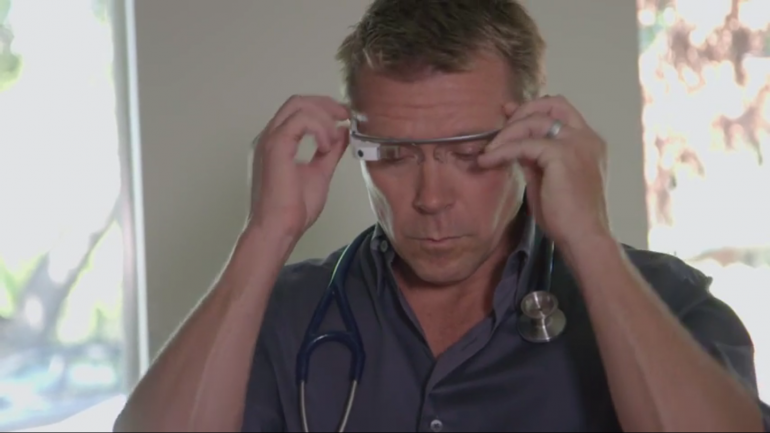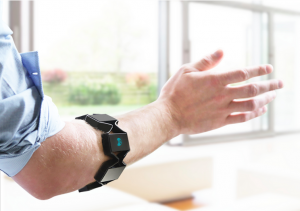Thalmic Labs evidently knew that if it was to remain among the hottest current wearables leaders, it would need to find some way to play along with the latest in smartglass technology. Today the company announced the integration of its flagship product, the Myo armband, with smartglasses including Google Glass, Epson Moverio, and Recon Jet.
It’s even partnering up with startups making waves in their own industries to add a new twist to how smart technology can positively affect the medical, construction and more industries.
Thalmic Labs has partnered with thought leaders in several industries that are working on innovative smartglass enterprise solutions:
- Augmedix – Augmedix uses Google Glass to free physicians from documentation so they can focus on patients. Integration with the Myo armband means physicians can find and move through patient information with the simple swipe of a hand. The gesture control extends beyond voice and touch commands to provide physicians with seamless access to data input and retrieval.
- APX Labs – APX Labs builds software for smartglasses, like Epson Moverio and Google Glass, which improve field work, such as at wind mills, oil refineries or hydro plants. Field service workers can access data, troubleshoot issues, and receive detailed feedback right in front of their eyes to quickly move through the data using the Myo armband.
And these two Canadian startups:
- Bridgit – Closeout by Bridgit is a deficiency management software suite aiming to respond to issues of miscommunications on construction sites. Closeout enables construction deficiencies to be tracked and communicated in real-time. Using Google Glass and the Myo armband, project managers on construction sites will be able to instantly record deficiencies and assign them to the relevant sub-contractor during walk-through inspections.
- Recon Instruments – Recon, a leader in heads-up displays, provides those working in the outdoor sporting industry and those who use bicycles on the job instant statistics on performance. Recon Jet gives real-time feedback on data necessary to improve. For example, a bike patrolman can replace the remote pad on the wristband with the Myo armband to free up both hands for a safer ride.
The Myo armband enables workers in industries such as construction, field service and healthcare to interact with smartglasses using subtle hand and finger gestures while on the go. Using the Myo armband, users can eliminate tedious remote controls, touch pads, buttons, and voice control that slow down access to information and multiple-step processes to enter or retrieve data. Staying hands-free is necessary in many work environments, such as ones that are noisy or require sterility, where interacting with technology remains a priority.
“Smartglasses remove barriers to accessing the information and communications needed to effectively and efficiently perform the job at hand. Now, the Myo armband frees up your hands to unlock the full value of smartglasses,” said Thalmic Labs CEO Stephen Lake. “The Myo armband uses subtle hand gestures to instantly interact with applications on smartglasses, without needing to remove gloves or pull out a secondary controller.”
Myo Developer Kits began shipping in July while the Myo armband begins shipping this fall. It’s currently available for pre-order for $149 USD.
“Enterprise applications for smartglasses could have significant benefits by increasing asset efficiency, reducing the number of service calls, and improving decision-making through real-time data,” said Deloitte’s Andrew Vaz. Deloitte is helping Thalmic Labs with smartglass innovation. “With a gestural input companies have the opportunity to go after markets where deskless workers aren’t able to take their hands off the immediate task at-hand, or markets wehre noisy work environments that make it difficult to use voice communication.”
Founded in 2012 by three graduates of the University of Waterloo’s mechatronics engineering program (Stephen Lake, Matthew Bailey, Aaron Grant), Thalmic Labs has grown to a world-leading team of engineers, researchers, and designers committed to building the future of wearable technology. In June 2013, Thalmic Labs raised $14.5 million in Series A funding led by Spark Capital and Intel Capital.



